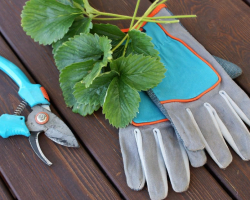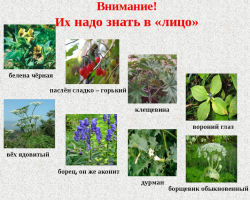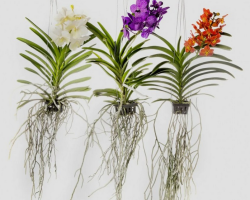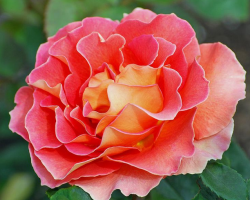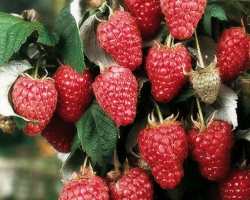In this article, we will talk about how to deal with pests in the garden using onion husks.
Content
- Onion husk from pests of the garden and garden - what does it help from?
- Onion husks for cucumbers from diseases and pests: use, recipes
- Onion husks from aphids on roses: application, recipes
- Onion husks from aphids on currants: application, recipes
- Onion husks from a spider mite, from yellowing of leaves: application, recipes
- Onion peel from the wireworm: application, recipe
- Onion husks from late blight on tomatoes: application
- Onion husks from a bear in the garden: application, recipes
- Infusion of onion husk from Khrushch in the garden: application, recipes
- Onion husks from midges at home: application, recipe
- Onion husks from powdery mildew: application, recipes
- Onion husks from whiteflies in the garden: application, recipe
- Onion husks from carrot flies: application, recipe
- Onion husks from a black leg on seedlings: application, recipes
- Onion husks for strawberries from pests, weevils: application, recipe
- Onion husks from pests of indoor plants: Application
- Video: onion husks - super fertilizers and a means of combating pests
The use of natural nutrient fertilizers, as well as insecticides and growth stimulants, is an integral part of agriculture. It is such a natural remedy that is onion husks. Its use is effective thanks to a rich composition in which there are many useful and nutrients.
Onion husk from pests of the garden and garden - what does it help from?
As a rule, the husk, which remains after the onion is cleaned, is used as a natural fertilizer. It saturates the soil with useful substances and protects against pests. Onion husk for the garden is useful thanks to its composition. So, it includes:
- Carotinoids - They do not allow fungi and rot to develop. In addition, in plants, resistance to other diseases increases
- Vitamin C. Simply vitamin C. He strengthens the immunity of plants and allows them to “breathe” better
- B vitamins B. They stimulate growth, help strengthen stems and leaves, and also prevent rotting of the roots
- A nicotinic acid. Accelerates the growth of roots, regardless of the type of soil, for which it is used
- Fitoncides. These substances have an antimicrobial effect. They allow you to deal with diseases and their pathogens
- Potassium, calcium, iron. Activate the nutrition of the plant at the cellular level and favorably affect the soil
Onions are used in different ways in the garden, and depending on the plant, the method may vary.
Onion husks for cucumbers from diseases and pests: use, recipes

Onions for the garden are used in the form of infusions and decoctions. It is also used in a dry state. The choice of the type of top dressing depends on what it is intended for. As a rule, solutions are used for spraying from pests and diseases. Be sure to dry the raw materials before cooking.
- So, the first effective tool for cucumbers is Cold onion infusion. For him, you will need 5 liters of water and 100 g of husk. Take a small plastic bucket and place the peel to the bottom. Next, pour water temperature with water and leave all this for 5 days under the lid. After preparing the infusion, strain and you can use. Keep in mind that it makes no sense to store the tool, because it very quickly loses its properties. So use it right away.
- There is and Hot infusion. It is preparing very quickly. For him, steal a liter jar of onion husks in two liters of water. The latter should have a temperature of 40-50 degrees. The mixture is infused for a day. After that, strain the concentrate and dilute 10 liters in a bucket of water. You can use the infusion both in greenhouses and greenhouses, and on unprotected soil.
- The third remedy is a decoction. It will require 5 liters of water and 100 g of husk. Mix the components and put on the fire. When everything boils, leave for 7 minutes. After cooling the decoction, strain and pour in two liters of water. With this tool, spray cucumbers for prevention after rain. If there was no precipitation, then water the bushes under the root.
Onion husks from aphids on roses: application, recipes
Garden roses for aphids are the most favorite treat. Especially the pest loves young shoots. It is quite difficult to identify at the very beginning, because it is hidden under the leaves. It is visible with the naked eye when the colonies multiply and envelop the shoots and buds.
To save your flower beds, it is important to properly care for flowers - to plunge in a timely manner, cut off the crowns, strictly observe planting schemes, do not make a lot of ozone and do preventive processing.
You can determine the presence of pests by such signs as:
- The leaves are twisted and deformed. In the first stages, they become a reddish shade
- The tops of the young twigs are faded and the peduncles are deformed
- A brilliant sticky coating appears on the stems and leaves
- Ants that love copper dew begin to run around plants
- The leaves begin to use and the buds fall
Onions for roses in this case will be extremely effective. This is due to the fact that aphid does not like the onion smell and therefore "runs away." For processing 200 g, pour a bucket of warm water. Insist under the lid in a warm place for five days. After that, strain the infusion and you can safely spray the affected places. By the way, the tool is allowed to use as a preventive.
Onion husks from aphids on currants: application, recipes

Aphids may also appear on the bushes of currants. On its elimination, onion husks is also effective. The solution, especially in the first stages of the lesion, copes best with its task.
To prepare the infusion, you will need 200 g of husk and 10 liters of warm water. Insist the product is required within 15 hours. After that, it is filtered and used to spray the affected bushes. Keep in mind that you should not overexporate the product, otherwise it will disappear from it and even bacteria will begin to develop.
After the first processing, it is recommended to repeat the procedure after a week to consolidate the results.
Onion husks from a spider mite, from yellowing of leaves: application, recipes
A spider mite is another pest of the garden. As a rule, it is easy to detect by the changed type of plants. The fact is that they turn yellow, dry and fall. The parasite can affect flowers through the affected soil or even fly through the window on indoor plants. Onion husks will help to get rid of it.
- The infusion is most effective with the pest. For it, pour 500 g of husk with 5 liters of water and insist for five days. Dilute the finished product with water and pour into a pulverizer. With it, spray the affected plants.
- Another way is to prepare a drug based on bulbs. For him, place two finely cut heads of onions in a liter of hot water and insist for 30-40 minutes. Strain the resulting tool and spray the plants.
Onion peel from the wireworm: application, recipe
The wireworm is a larva of a beetle-shchelkun. This pest feeds mainly with root crops and causes many problems. However, he does not tolerate mustard.
- Onion husk shows the effectiveness in the fight against this pest. But only processing with it will not work. You need to use the husk already when landing. Add it a little to the hole. And to enhance the effect, add the needles of any coniferous tree.
- The effectiveness of the product is due to the presence of phytoncides in the composition. The fact is that they work as a natural antibiotic and plant immunomodulator. It has already been proven that these substances are produced by any plants, simply not everyone is able to do this in sufficient quantity to protect.
Onion husks from late blight on tomatoes: application
Often, gardeners have to deal with late blight when growing tomatoes. This is a fungus that affects the nightshade. It can also appear on eggplant, potatoes, pepper. If you do not eliminate the late blight, then as a result you risk being left without a crop.
The disease affects the plants completely. She looks like vague spots of brown-gray color, which make fruits unsuitable for food. The onion husk is effectively coping with late blight. Infusion from it is carried out every week. Just keep in mind that all infected areas must be removed before processing, as well as remove the fruits. It is important not just to throw them away, but it is better to burn them.
Onion husks from a bear in the garden: application, recipes

The bear is a pest that can greatly spoil the crop. That is why when it is detected, you need to get rid of the pest as quickly as possible. The bear is also called Kapustyanka. It looks like a small insect of 2-5 centimeters. Outwardly, it is quite terrible, and therefore many are scared.
There are many methods of combating this insect. Moreover, some of the drugs are considered ineffective, because insects are able to adapt to conditions and drugs. For the same reason, it is difficult to say which method of struggle is suitable for your garden. Onion husk in the fight against the bear shows good results. Although some do not believe too much in the effectiveness of the method.
So, to fight the bear, insist onion husk in clean water for 4-6 days. For a high -quality solution, you will need 1 kg of husks per bucket of water. After insisting, the concentrate is diluted with water in a ratio of 1: 5 and is used for watering plants after rain. Procedures should be carried out several times with a frequency per week.
Infusion of onion husk from Khrushch in the garden: application, recipes
It is customary to call Khrushch the larvae of the May beetle. In appearance, they resemble large worms of yellowish-white color with solid light brown heads and rare dots on the head. They develop for a long time - several years. At the same time, their gluttony can greatly harm potatoes, beets, carrots, onions, corn, strawberries, perennials and shrubs. To get rid of larvae, onion husks for the garden can be used.
Plants are processed using a special infusion. Pour only 100 g of onion husks with a bucket of water and insist for a week. After that, water the plants.
Onion husks from midges at home: application, recipe
Onion husk for the garden and at home is very useful. She shows herself well in the fight against midges. The main reason for their appearance is an increased level of humidity in the pot. No one argues that plants need moisture, but too much water should not be poured too much. First of all, due to too much water, the roots begin to rot. In addition, humidity contributes to the development of pests.
So, to get rid of midges, take a liter jar of onion husks and pour two liters of boiling water. After that, leave the remedy for five days. After that, the infusion is stirred. Additionally, 4 g of grated laundry soap is added to it. Before pouring plants with a finished tool, dilute it in clean water in a proportion of 1: 2.
Onion husks from powdery mildew: application, recipes
Dragged dew, as a rule, affects the planting of cucumbers. At the same time, it can appear at any stage of plant development. However, as practice shows, the problem is more often “activated” in July-August, that is, during active fruiting. In the ground, the pest is able to live up to seven years.
Onion husks will help to fight with powdery mildew. For the garden, she is an indispensable assistant. This is done by preparing infusions.
We offer a choice of several recipes:
- Take 250 g of onion husks and pour them with 10 liters of water. You need to infuse the product for four days. After that, you can strain it through a double layer of gauze. The finished infusion is used as a sprayer. To make the processing full, repeat the procedure three times with breaks of five days.
- Fill the bucket half crushed with husks and shall be shared by hot water so that the container is complete. Leave to infuse for 1.5 days under the lid. Before using the infusion, strain and dilute in half with water. This is an excellent tool for irrigation of plants.
- The fastest way is to mix 7 g of husk and 12 g of onions. You can do this with a blender or meat grinder. Pour the finished mixture with a liter of hot water and leave for 7-8 hours in a closed dish. After that, the product is filtered and can be used for spraying.
By the way, so that the composition is better sticking to plants, you can add a little liquid or grated laundry soap to it. Plants are sprayed completely, without leaving any free areas. As a rule, the finished infusion is enough for one -time use. However, if you have it, then you should not store it, because the longer the product costs, the less useful substances remain in it.
Onion husks from whiteflies in the garden: application, recipe

Belkrylka is a rather dangerous and often encountered pest in Russia. Most gardeners do not even represent where he comes from. At the same time, whiteflies attack a variety of crops. To get rid of the pest, it is recommended to use not only purchased ready -made products, but also plant -based infusions. The fact is that the insect does not like the smell and it tries to stay from the plant as far as possible. A onion husk copes well with the pest. For the garden, it will become a real savior.
So, you will need half a bucket of onion husk to prepare the product. It is poured with 10 liters of warm water. You need to insist the mixture for at least two days. After that, strain the infusion and water the beds. Keep in mind that the processing should be regular - once a week.
Onion husks from carrot flies: application, recipe
It is most effective to fight with carrot fly only at the early stage of its appearance. It is important to learn how to recognize it. The length of the insect is 4-5 millimeters. She has a black abdomen, red head and yellow legs. It flies with transparent greenish wings. The pest is mainly affected by carrots, Pasternak, celery and parsley.
Onion husks will help to fight the fly. For its preparation, pour 400 g of husks with five liters of boiling water. Insist the product for two days and then strain. The finished solution for spraying is used. The maximum effect of it can be obtained when the first 2-3 leaflets appear in plants.
Onion husks from a black leg on seedlings: application, recipes
The "black leg" is called the rot of the root part of the plants. It is considered a common fungal or bacterial disease that affects seedlings. As a result of exposure, it dies.
Often the disease begins to develop due to insufficient amount of heat and light, as well as with high humidity, weak ventilation or too thick landing. Also, the development of rot is facilitated by sharp temperature changes and too many fertilizers. Also, the black leg affects weak seedlings.
In order to cope with the disease or carry out prevention, pour one glass of onion husks with a liter of cold water. Bring the composition to a boil and let it brew for a day.
Onion husks for strawberries from pests, weevils: application, recipe
Strawberries are also attacked by pests. Onion husks also helps to cope with them. For the garden, the product is very effective. As a rule, use is carried out by spraying on the surface of the leaves. And to make the crop more, it is important to water the plants under the root.
Weevils and other pests can reduce yield by half and even more. The beetles pose particular danger in the spring, when buds ripen. The weevil is a black beetle up to three millimeters long. It is covered with gray bristles on top. It stands out with a long proboscis.
Onion husk helps to fight him. For the garden, it is useful with celandine. Dried components in a ratio of 2 to 1 chop and fill the pan on the third part. Pour the entire mass with boiling water. When it cools down, strain it and sprinkle it on plants. To enhance the effect, repeat the procedure after 2-3 weeks.
Onion husks from pests of indoor plants: Application
Onion husk for the garden is very effective, but it is no less useful for indoor plants. They are also exposed to pests. To get rid of parasites, prepare a onion decoction. For him, mix the husk and boiling water in a ratio of 2: 1 and insist 4 days. After the end of the deadline, strain through a colander and add clean water so that it is twice as much as the decoction.
Before you start processing, add a little green potassium soap or other detergent to the composition so that the composition sticks better to plants. Close the pots themselves with a film so that the solution does not penetrate the ground. Thus, carry out processing several times with intervals of 10 days.
Video: onion husks - super fertilizers and a means of combating pests
https://www.youtube.com/watch?v\u003d_ZXS4KH3WCU
Read also:


